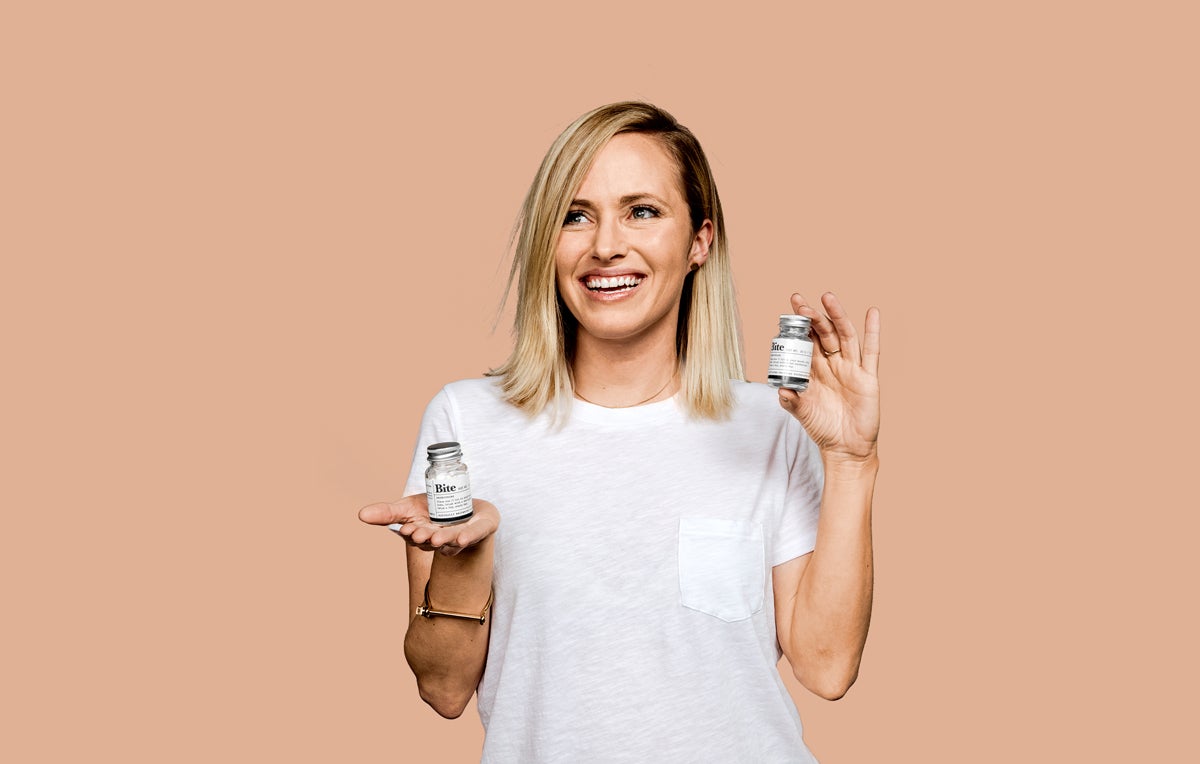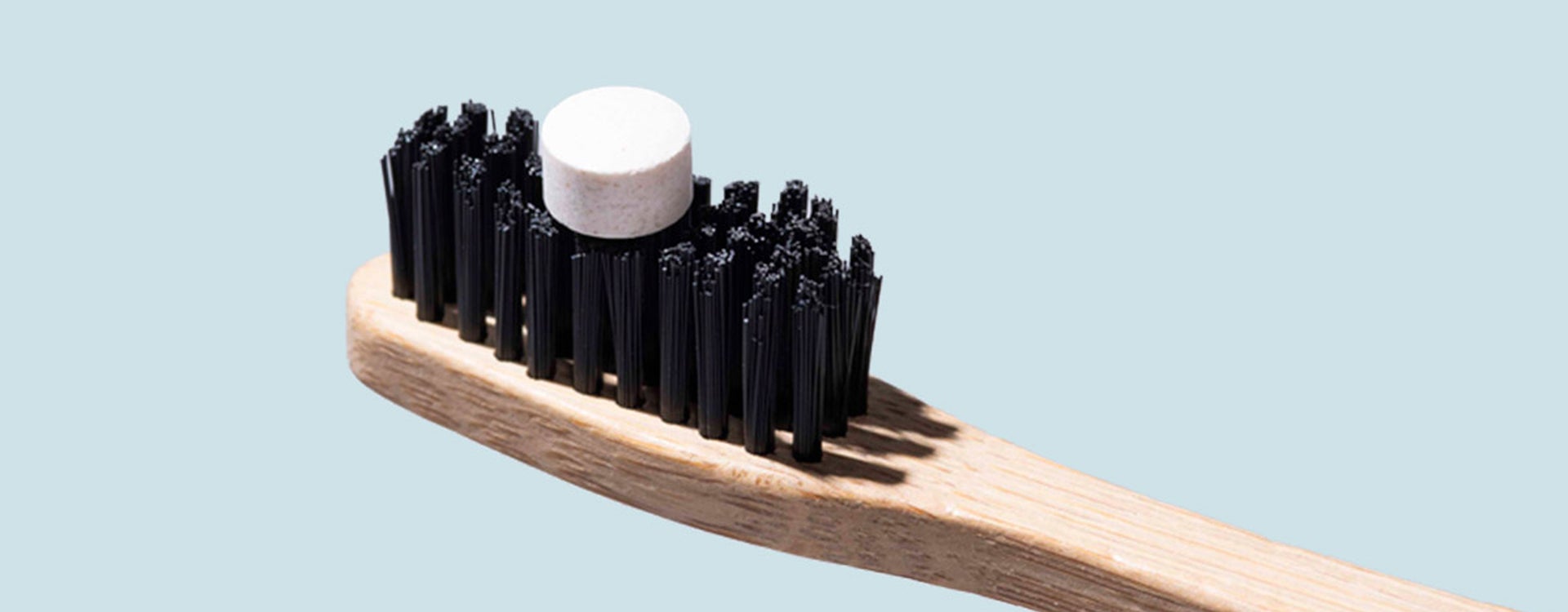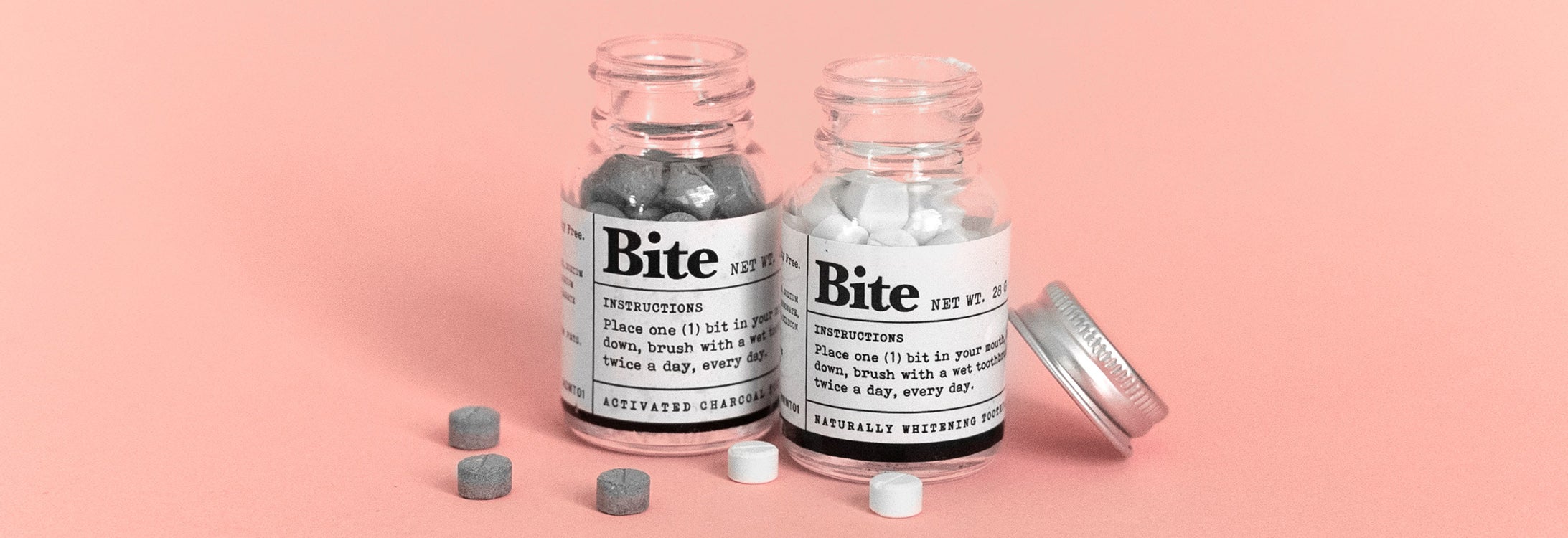BRUSHING BETTER
This ECU alumna is taking a Bite out of big toothpaste brands

McCormick has been featured in Women’s Health, Cosmopolitan and Business Insider.
In 2016, Lindsay McCormick started an experiment in sustainability, resolving to make an alternative toothpaste that didn’t involve throwing away little plastic tubes every month.
McCormick, who graduated from East Carolina University in 2007 with a degree in communication, was traveling frequently as a producer for HGTV shows House Hunters and House Hunters Renovation. Being an eco-conscious person, the amount of travel-sized toothpastes she went through unsettled her, especially when she learned that more than one billion toothpaste tubes end up in landfills every year.
“I really try to make sustainable choices,” she said. For starters, her final communications project as an ECU senior was on deforestation. She eschews plastic bottles and even bought a sprinter van to turn into a mobile tiny home with solar panels.
“I started to search for a sustainable alternative, and that’s when I learned about all the questionable ingredients that are in commercial toothpaste. I didn’t want those ingredients in my body, but I couldn’t find a brand that was plastic-free and used ingredients I could trust. So, I decided to make my own,” McCormick said.
Those two questions – why does toothpaste come in plastic tubes and what exactly are we putting in our bodies when we brush our teeth? – inspired McCormick to create Bite Toothpaste Bits, a plastic-free alternative to regular toothpaste.

Instead of a plastic tube, Bite is a glass bottle filled with chewable tablets that foam up once you start brushing. Each tablet has less than 10 ingredients.
Instead of a plastic tube, Bite is a glass bottle filled with chewable tablets that foam up once you start brushing. Each tablet has less than 10 ingredients (all listed on Bite’s website). Most customers purchase a four-month subscription box of tablets, but individual bottles are also sold online, McCormick said. The first shipment comes in the glass jar and following shipments come in recyclable refill packets.
At the start of Bite, McCormick took open source chemistry classes online to teach herself about how toothpaste ingredients work together. She also looked up toothpaste patents and talked to dentists for their opinions.
“I love learning,” she said. “When I found something I was passionate about, I was motivated to learn new things to get to my goal.”
Then she bought a tableting machine and began churning out Bite tablets in her living room in Los Angeles. Now, after being featured in media outlets such as Women’s Health, Cosmopolitan and Business Insider, Bite operates out of a fully FDA-approved manufacturing facility to keep up with demand. Since August 2018, Bite has sold more than 12 million tablets, McCormick said.
Last year, she and co-founder Asher Hunt, her boyfriend of five years, quit their jobs to operate Bite full time. They’re working on building a team of employees to help grow the company.
“Trying to get a wrangle on supply has been a challenge for us. We’re trying to be the best that we can be in the personal hygiene space,” McCormick said. “We’re trying to do it all right and sustainably.”
The best part about starting her own company is hearing about or seeing strangers use her product, McCormick said. That, and making a difference in the world. One toothpaste tube at a time.

According to McCormick, Bite has sold more than 12 million tablets since August 2018.
